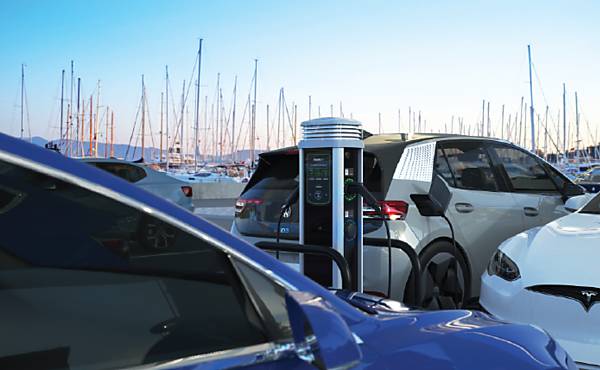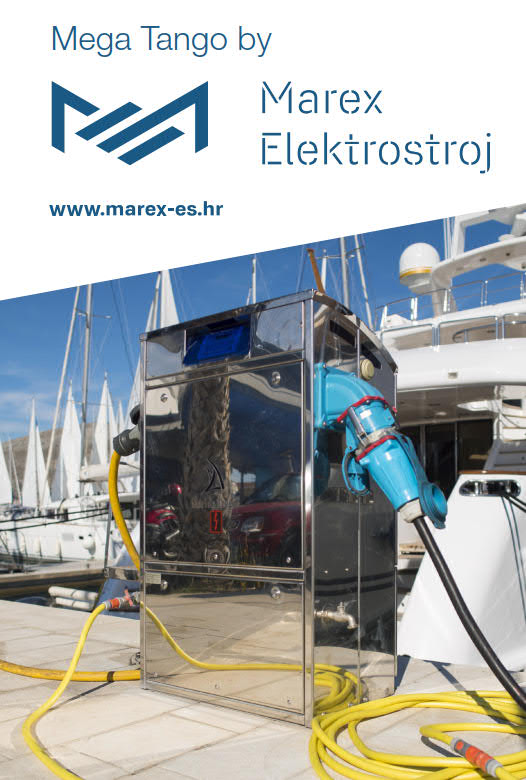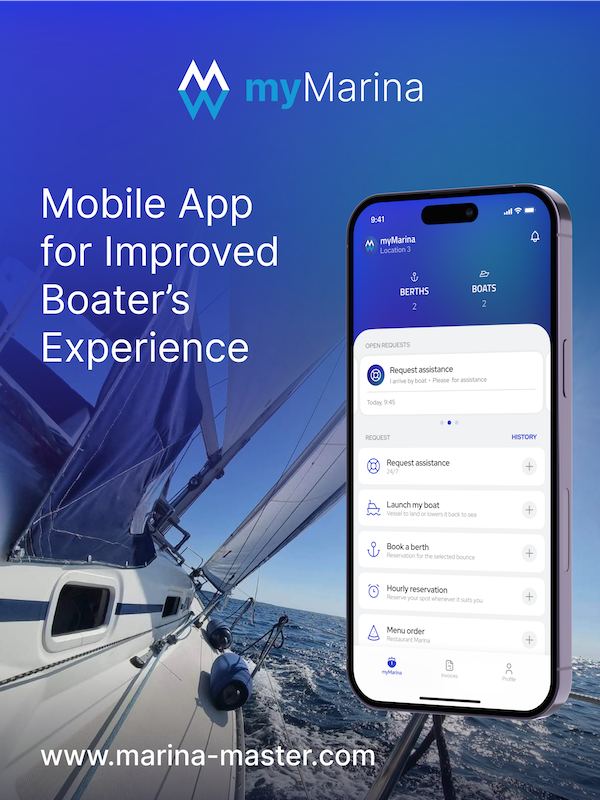EV charging in the marina industry
Rolec has been a trusted supplier of electrical facilities to marinas around the world for over three decades and, in recent years, has also developed a fast-paced EV (electric vehicle) charging business for the UK market.
Operators who put their marinas on the EV map, attract new guests who are eager to access convenient charging.
Over the past ten years, emissions have been the biggest discussion point in the UK, leading to increased investment in renewable energy. Over 800,000 people are now driving electric cars and a larger conversation is opening up about how much waste we produce as a nation.
As the UK prepares for a net-zero future, demand for greener modes of transport and charging infrastructure increases. The transition to fully electric vehicles means that EV remains one of the largest green tech industries, with the most potential for growth over the next decade. In fact, according to the International Energy Agency, the number of electric cars on the road globally surpassed 10 million in 2020, despite the COVID-19 pandemic. This trend is expected to continue as more manufacturers invest in electric vehicle technology.
Zero-emission transport is not purely a car issue. If we expand our perspective to include other forms of transport, we might be surprised to find out that the most significant thing that we can do to reduce our individual environmental footprint is to stop flying. Travelling abroad is responsible for around 1 billion tonnes of CO2 emissions globally each year – which is more than the emissions produced by entire countries – making it the next on the chopping block for the environmentally conscious people among us.
With this in mind, the marina industry has the potential to become the saving grace for Britons looking to get away from it all without sacrificing the planet in the process.
Charging away from home
Infrastructure needed to support the transition to fully electric in the UK is not currently meeting demand. This factor was identified as the main concern for EV drivers in Zenith’s EVXperience report, with range anxiety and the struggle of finding somewhere to charge-up on journeys seen as a roadblock to enjoying an EV staycation. Having the option of charging at your destination will, for many, make the difference between a relaxing family vacation and a weekend trawling the countryside trying to get charged up.
It is, therefore, no surprise that, according to new research by the UK Department for Transport (DfT), almost half (47%) of the available public charging network, or 19,044 charge points, can be found in destination locations. Adding charge points at marina facilities, gives EV drivers the security of knowing that they won’t have to plan their trip around charging, which will encourage them to favour the marina for their next short-break or summer holiday.
Put your marina on the EV map
Around 90% of EV drivers seek out destinations that have charge points over those that do not. If operators put their marinas on the EV map, they attract new guests by providing convenient charging. Another thing to consider is the number of EV drivers who will travel that bit further in search of charging. If you know your area is lacking public charging infrastructure, and most areas are, offering charge points increases the likelihood that EV owners will choose your marina over others than don’t offer charging. Depending on your location, EV charge points can be available to guests for the duration of their stay, as well as being offered to motorists passing through the area. And charge points visible on charging apps, like ZapMap, attract drivers to the marina for a top-up en route to another destination.
Vehicle downtime, although a source of irritation for EV drivers, also opens up an additional business opportunity. A café, mini golf, or even just a vending machine will be much appreciated by families looking to pass the time as their car gets juiced up, and these have the potential to become additional revenue streams.
However, when taking the UK’s high energy prices into account, the thought of giving away more electricity to visitors might seem like a daunting proposition. But with the right back-office software, charge points can pay for themselves over time. Charging tariffs can be completely customised with segment pricing for different groups, like staff and public; tariffs raised during peak hours; and reserve charge points set up for certain visitors at certain times. This means that the marina can guarantee that visitors will have charging available to them.
Wattif funding
Thanks to its strategic partnership with Wattif, Rolec is in the unique position of being able to offer fully funded, part funded, and subscription options to marina owners, enabling them to install EV charging infrastructure with less risk to business.
Wattif’s 100% fully funded turnkey solution covers the cost of charge point installation, purchase, maintenance and software. Charging infrastructure can be installed without any risk of investment for the business. Alternatively, marinas can take advantage of a 50% partially funded option. If opting for this, Wattif takes responsibility for the cost of installing, maintaining and operating the charge point and also shares the initial upfront cost. The third, subscription, option provides an all-inclusive EV infrastructure solution without initial costs. Wattif handles everything from set-up to site management, and marina owners can still access OZEV (Office for Zero Emission Vehicles) grants.
Whichever Wattif model is selected, all operating costs are included. Wattif EV will always operate and maintain the charge points, meaning operators can spend less time looking at EV charge point management and more time with visitors.
www.rolecserv.com
READ MORE Utility management for the waterfront
Sixth hoist for North Yard
Vacuum sewer station to become urban asset
Composite decking outperforms for strength
Adjusting bunks without a drill
Boat stands for all vessel sizes
Rugged RIB multitasks in marinas
Game changing remote for boat lifts
Buying and Selling Marinas March/April 2025
Revising standards for a changing industry
AMI Expo: energising and inspiring
Sharing the benefits: welcoming boat clubs
Subscription culture drives boat share prospects
Ecofriendly plans to boost nautical tourism
Service agreements protect investments
Sustainable storage
Drystack to create centralised hub in the Bahamas
Building a future for UK drystack
Hurricane damage stalls redevelopment project
New marina for San Francisco Bay
Further phase at Port Takola
Blackstone buys Safe Harbor in multibillion deal
EOI for Aberdeen Typhoon Shelter
Work begins on Port Nimara
Suntex opts for Storable technology
Second club in Brisbane
ISO wins for Liverpool
Floating dock helps meet demand for superyacht berthing
Seawall specialist appoints distributor
Diamond range launched in Amsterdam
Buying and Selling Marinas 0125
Ecotourism Australia
Coral Sea earns a first in sustainability certification
Innovation to restore seagrass meadows
Real time spill detection: automatically
Tomorrows solutions for todays problems
Navigating through choppy waters
Five star luxury at all new Porto Carlo Riva
Metstrade record breaker sets ground for bumper 2025 event
Pioneering inclusion: boatfolks accessible boating vision
Focus on future proofing
First urban marina in Huelva
Marina expansion to be hub of new harbour district
Yachting hub features in Airport City plans
Vilamoura marks 50 years with Nova Marina launch
Outstanding sweep at marina awards
LAMDA Marinas signs to build and operate megayacht marina
Survey reveals vital economic contribution
Poralu Marine launches Wearth Group
Jeddah Marina receives operator licence
Smart member comms at Hong Kong yacht club
Managing berths at expanded sites
Installing safe mooring systems
Protecting pontoon boats
Surviving Hurricane Beryl
Smart systems streamline Croatian marinas
Cimolai Technology: catering for all boat sizes
New crane design unveiled in Amsterdam
Marine Travelift E Series is ready to roll
Innovation and sustainability
Kropf delivers first all electric boat hoist
BUYING and SELLING MARINAS
Marinetek marks 30 years
Monaco Rendezvous: Smart and Sustainable Marinas 2024
Project Valencia: integrating the port with the city
Bringing new life to Banagher Marina
Is the essence of Port Grimaud under threat
Factoring in the need for electric power
Substantial progress for luxury wellness destination
Building on water The floating possibilities
Dates and times for Marinas26
Conference honours marinas and yards
Queensland marinas driving employment
Walcon to build SIBS marina for 15 years
Gold Anchor winners take centre stage
Newly merged pontoon companies eye global expansion
Iowa marina ramps up improvement plans
New management at Karpaz Gate
Code of Practice revision for now and the future
Waiheke wins green 'credits'
Dock replacement progress at Salty Sams
D Marin to manage new Med style marina
BMDC confirms construction milestone
Las Olas opens as a 'gateway to the city'
Ground breaks on first international standard marina
Pre-register for IWMC 2025
Western Marinas buys Marine and Property assets
Charlotte Harbor upgrades with new Travelift
Innovation comes in threes
Boosting the AcqueraPro network
Concrete breakwater protects municipal marina
Showcasing industry innovations
Driving growth in superyacht cruising
Transparent billing and control
Repowering inland marinas
Preparing for electric boat charging
Fast charge in Brittany
Redefining marina safety and connectivity
Continuing success in Middle East
Developing pedestals as 'technological hubs'
Broom Boats sells to Horning Pleasurecraft
Call for bids to operate Funchal Marina
Building a marina portfolio
Bring in the architects
Coastal concepts: re imagining marina potential
Port Vell shape up for America's Cup
D Marin wins tender for Camille Rayon
City green lights marina rebuild
Attenuator offers sailboat storage
Piers replaced at QEII Marina
Suntex and Northgate to manage Kimberling Resort
Biggest marina in Seoul approved
Waste clearance on the seabed
Barefoot safe decking options
New hoist completes cat haul out facility
The widest docks in Spain
How technology paves the way for a smarter marina
Avoid the pitfalls and spot the trends
Scottish marina offers development opportunities
SEA Index rolls out to French marinas
European marinas advance ocean stewardship
World first vessel to grid project
Selecting the best charge points
Marinas24: big turnout for new venue
Fourth Monaco Rendezvous focuses on innovation
IBEX 2024: Exploring the biggest issues
Creative solutions for challenging projects
Building tomorrow's floating structures
Continuing the sustainability programme
Perfecting a forklift portfolio
Collaboration sets groundwork for advanced drystack build
Sheltering boats in North Bimini
Vintage drystack is now history
Patterson Lakes: pioneering Australian automated technology
A1 plans for superyacht marina
J Pier go ahead for Sanctuary
Marina stars in latest Neom release
Four Seasons invests in Jacksonville plans
Investment boosts Ayla tourism offering
Landmark marina plans on Delaware River
Italian marinas in the broader context
MDL partners with Club Lagoon
Inland marina: first for hydrogen
Greener practices in Mallorca
Cost conscious smart marinas
Marina market insights
MDL buys prime waterfront plot
Port Dinorwic sold to local consortium
Suntex boosts northeast portfolio
New owners for Ozarks resort
The next Florida superyacht marina?
Sustainability goals across the network
Ingemar at 45 innovating for the bigger picture
Life in the seawall
Sustainable design is just 'good design'
Spoilbank Marina: a refuge from industry
The multiple factors in modern design
New waterfront to revitalise Muscat
Algarve marina now in build
Dock project completes for Marine Max
Build starts for Livorno
Oasis expands reach to Texas
Full steam ahead in Taichung
Billion dollar spend on US marinas
Reimagining Hurricane Hole as the jewel of the Bahamas
Protection from lightning strikes
Inspiration for the waterfront
Software support keeps Pacific 'jewel' on track
MDL boosts tech plan
Making marinas 'truly' smarter
Smart approach to billing
Rebuilding Snook Bight
Swedish Riviera marina rebuilds and reconfigures
Double sanitation system in Sitges
Agapi and Axopar launch AxA
Nautical Boat Club heads to Kemah
Going green with hydrogen
The base behind the race
GCCM badges new Gold Coast race
JoySail joins the racing elite
A year of growth, achievement and innovation
Trading covetable assets
Lusben development boosts refit standards
Luring megayachts to Golfito
Dock Maarten: A mecca for megayachts
IGY launches Savannah Harbor
Brisbane River marina fills 'overnight' gap
Marina access to mountain retreat
MA Marina boosts portfolio
Marina in plans for Ras Al Hekma
Marinas24 finalises programme
Oasis to manage Dania Beach
ADSP opens bids for new Cagliari port area
Thumbs up for AMI Expo
Waterfront innovations in Canada
New agent for Capria
Breaking ground on the future
Port Vell launches bunkering service
Pacsoft launches MarinaPay
Extra berths at The Boat Works
Storm protection in Quincy Bay
Dura adds smaller size mesh
Smart Marinas guide and 2022 industry statistics
Man Overboard alarm readies for export
Eco pedestals promoted for export
Safe storage for lithium batteries
Freedom adds two Sydney clubs
Rental service boost in South Florida
New transporter is fit for a Princess
Keeping it in the family
Metstrade remains essential anchor point
Adapting marinas to alternative fuel propulsion systems
EV charging in the marina industry
Whitepaper illuminates key role of bidirectional charging
Mobile fuel station pioneers sustainability and efficiency
Resilient marina renovations lead to coral relocation
New research outlines pathways to decarbonisation
A resilient rebirth at Zeke's Landing
Renovations, partnership and acquisitions
Partnership boosts nautical tourism
Replacement docks double superyacht capacity
Premier buys leading drystack
Tourist driven marina breaks ground
Waikawa extension opens
Ultra luxury on The Spit
Launching Norlana superyacht hub
Popular boat lifts form part of renovation project
New forklift boosts operator confidence
Digital payment solution for visitor moorings
Stacking up on Okanagan Lake
Smart software drives success in Mooloolaba
Using bacteria to eliminate hydrocarbon residues
Sustainable sanitation for America’s Cup bases
MDL continues multi million pound roll ut
D-Marin makes €1.7 million investment
Voting in the best for 2023
Regeneration continues at Isle of Wight harbour
Expansion plans in a buoyant market
Customers, culture, comms and carbon
Ligurian icons make a comeback
Welcoming megayachts to Istanbul
Integra buys Aventura marina
Med marina networks partner up
Renewed Dover dock nears completion
Merger creates 'biggest' South Florida marina
Sindalah yacht repair centre, first of many for Neom
New Calero group marina, and more
IBEX one of best to date
Plans firmed up for Habacoa
M3 to boost Amaala to La Belle Classe
IWMC 2025 heads to Venice
AMI keynote announced
Redeveloping a prime lakeside marina
Charging options on both sides of the Channel
Sanitary building kick starts floating building range
Hydrogen power
Floating patio becomes new marina hub
Boosting sustainability with the WRF
New lifts in facility upgrade
Interest builds for electric hoists
Majoring on the minority
Flying the Blue Flag
Silver EcoVadis for Premier
Protecting a sensitive ecosystem
Tangible benefits for the local area
Karpaz Gate Marina: A home away from home
Convenience is not a European value
Industry lobbies government on cyclone cover crisis
Upgrades at Port of Lisbon
Port 32 expands partnership with Gulfstream
North Island marina expands
Monument buys Florida marine centre
Marine Centre plans for James Watt
JYC Marina soft opens for Saudi Grand Prix
Wider decking panel– ideal for finger piers
GCMarine partners with Harbour Assist
Elevator Lift is reconfigured
Cleaning water with Advanced Oxidation
Trouble free trolley goes international
Waiting pontoon for high season
More Freedom in Australia
First in Barcelona, first in Redwood City
D Marin wins iF Design award
Futuristic pod delivered to the Pearl
New production line, new designs and noteworthy deliveries
New owners to invest in Dartside Quay
Multi use trailer for Canadian tourism service
Handle with care: a pad for all hull shapes
One year operation of electric boat hoists
Setting new delivery records for 2023
Variable width option for mobile boat hoists
IBEX 2023: focus on sustainability
In need of new marinas and new money
Superyacht marina for Dubai Islands
Swift progress on Blue Water Cay
Bermuda dock opens for superyachts
New managers for GCCM
IGY to operate NEOM's first groundbreaking marina
Mega focus in Italian marinas
Marina Bahia Golfito: the new Costa Rica destination
Rivergate up for sale
Full service in Fort Lauderdale
Go Outdoors platform launch
Upgrading key infrastructure
Marina group in administration
Operator sought for Co Down marina
How sustainable is your marina?
Geoff Phillips
UK marina group signs four year service contract
Valterri Vauramo
Joint connector enhances breakwater performance
Flovac wins second Mallorca contract
Setting a new standard in marine electrical safety
Smarter management, happier customers
Enhancing customer service across a multinational portfolio
Moss Marina: surviving the storm
Developing the Eagle Float
Wet versus dry in the western Med
First phase drystack opens in Charleston
Forklift design for growing centre console market
Pioneering drystack buys larger forklift
Industry views: Drystack storage
Promoting a customer focused culture
Ismailia contract awarded
Trophy asset for east coast portfolio
Marina completes waterfront regeneration
Investment plans for Pylos
Operator chosen for Elounda
New marina at town gateway
Guidelines for sustainable infrastructure
Evolving design over the decades
New trends drive marina reshape
Electric chargers for Italian marinas
D Marin expands digital solutions
Next generation buoy
Ultranav invests in LifeLadder
New hoist brings new technology
Pontoons for Ocean Race
Electric propulsion: a solution to pollution
Collection and protection for small islands
AMI Expo: a record breaker
Slovenian marinas join forces to boost potential
Resilience, long term vision and personal approach
Support for local businesses
Becoming a master at planning marinas
A nautical tourism centre for Piombino
Ismailia Yacht Marina: a key player in the new era of the Suez Canal
Rebuild underway at Club marina
Upgrade approved for Jones Bay
Port 32 buys Lighthouse Point
Suntex adds NJ and AZ marinas
Marina group expands to Spain
Port Vell as Cup superyacht marina
Berths still in high demand
Community space with maritime focus
Livart builds state of art factory
Dock company changes hands
New catalogue highlights
A 3D map of your marina
All change at ICOMIA
ICOMIA stats for 2021
Stellar joins Molo
Developing a fast charge network
The move to electric: e handling and e boating
Building a sustainable marina
Buzzing on full power
Innovation on the dockside
E dock supports e boat challenges
World Cup boosts pedestal contracts
Power for bigger berths in Dubrovnik
Opening the APS Seychelles agency
Building post pandemic momentum
Jesolo Marina plays major part in coastal plans
Reimagining Noss on Dart
Regeneration planning for Des Moines
Suntex buys Green Cove
New docks at Blue Haven
First NEOM island announced
Plan ahead for Marinas24
Novalja opens second phase
Melbourne City completes large berth upgrade
Inaugural PIANC America
Calypso Cove project agreed
Funding boost for Ocean Reef
MarineMax buys marina build specialist
Pod design to regenerate seagrass
First electric boat supercharger in Portugal
20 years for ICMS
Community docks for St Johns River
D-Marin invests in Sense4Boat
Autonomous gardening – anywhere under the sun
Australian marina sets new benchmark in waterfront living
Electric and traditional – hoist designs for all
Cat trailer range expanded
Ontario operator buys multi use trailer
Green o'clock at Metstrade
40 years of yard deliveries
One of the world's first electric marine hoists is installed in Spain
Twenty years of talented teamwork
Kemah Boardwalk: Gateway to Galveston Bay
Marinas and takeovers: Enough room for boating?
True spice in the Spice Island
Top US boat dealer launches first in state drystack
Captains and crew vote Coral Sea Marina 'best in world'
First superyacht repair and refit centre in UAE
Abu Dhabi: a new winter oasis
Gibraltar superyacht berths near completion
Superyachts welcome at Palm Beach marina
The big boat picture in southern Italy
Seclusion and luxury in the Bahamas
Jersey marina invests in rebuild
New superyacht haven in Greek isles
Resort opens in favoured tourist spot
Hurricane Ian devastates Fort Myers marinas
NZMOA 2022 Awards
Big Challenges, Big Decisions
Suntex expands into California market
Ocean Reef breakwaters complete
Almarin buys Aister
Historic club installs movable rowing pontoon
Partnership boosts green awareness
Fast charge expansion to US and Sweden
Customised forklift for Saxon Wharf
New decking prompts rethink
Silver and gold for D Marin
Third gen business buys third MT
MARINAS22: inspiring – and successful
Adelaide Pointe: a new development model
Repairs bring new energy to Dinner Key Marina
Buying and managing a first Italian marina
South Island gem for boating community
Construction starts at Dana Point Harbor
Second contract for 2024 Olympics
First phase completes at Windermere
Golden centrepiece at Beach Marine
Interest builds for megayacht marina
Common nautical rules sought
MarineMax to buy IGY Marinas
Bristol town upgrades harbour
Med market hit by lack of uniform fee policy
The good, the fair and the dangerous
The future of government marina leases and concessions
Boosting berths in Roskilde
Vacuum sewage system for new Spanish marina
Canadian club buys stacker crane
European boost for electric charging
Phase one portal release
Sign up surge for marina platform
Maximising occupancy: the smart way
Mia and Mateo and the smart marina
Delivering a digital future for marina management
One system for your whole business
Revolutionising time at the fuel dock
Kempinski to manage one of a kind hotel
A shared vision for the future on water
Building the first sustainable floating city
Flexible marina investment for maximum returns
New life for neglected peninsula
APCC wins Jubail contract
Resource consent for Te Rahui Herenga Waka
Spit plan contract
Berth boost at BYC
More cats welcome in Kemah
Planning for Enviro Officer course
Marina mooted in the east
Revised costing for St George's
JDC progresses mega project
Health of Industry report
MYP becomes MYTR at IBEX
Free flow club design links land to sea
Ambitious plans for a 21st century network
Azimut Benetti marinas
New all tide marina to enhance leisure mooring
Balancing land use, economics and destination appeal
When the seas rise
Sponsored feature: Semi automation boosts drystack
Phase two pier in place
Superyacht marina opts for vacuum sewerage
Storm proven attenuator protects Sunset Bay
Custom forklift for Cape Cod yard
Added value software features for ever changing industry
Developing a new green standard for Italian marinas
New yachting brand officially launched in Monaco
Coral Sea Marina Resort marks Clean Up Australia Day
Closing the loop on waste
Sustainable solutions support yard services
Composite piling for eco sense and long life
Future proofing St Michaels Marina
Trio to develop resort on Al Marjan Island
Semi automation boosts drystack profits
Final phase at Corpach
Upgrade complete at Albert Pier
Marinas to compete in Smart and Sustainable Rendezvous 2022
Abu Dhabi breaks ground on new marinas
Resort plans in Wallonia
Pelican Waters breaks ground on Queensland marina
New Cyprus Marina
Positive signs for Metstrade 2022
LA Waterfront. Setting the stage for new development
New yard in Australia
Marina group marks 35 years



